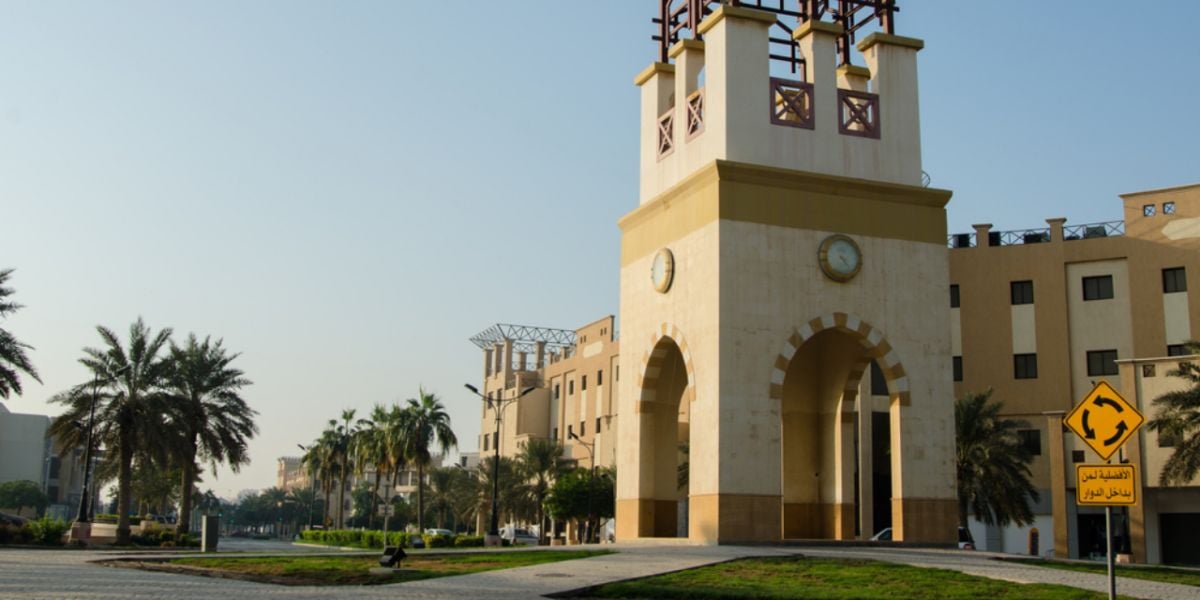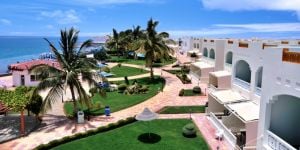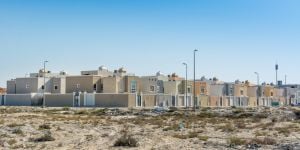
Jubail is Saudi Arabia's industrial hub; in fact, it's the largest industrial city in the Middle East. Continuously developing, it is deemed to be the biggest project of its kind in the whole world. The city attracts a large number of expats who are employed in various sectors. A place primarily composed of petrochemical companies, factories and refineries, Jubail is where many expats decide to settle for work.
Despite all the industries located there, Jubail is a beautiful, scenic city. Companies in the region have vested interests in creating and maintaining well-kept residential areas. Thus you will find many compounds and areas that were developed for a single employer and house the employees and their families.
The city is located on the Eastern Coast of Saudi Arabia, with amazing white sand beaches. It is about 100 km north of Dammam, Khobar and Dhahran. Expats have found that with fewer visitors to the beach, the calming and less populated area makes for a beautiful escape. Local authorities have taken care of the environment with a special program to preserve nature and the livability of the city while developing its industry.
The influx of expats in the region attracted many international retailers and restaurants. You will now find malls with familiar brands and a lot of fast-food chains.
Keep in mind that Jubail is used to expats from the West, who prefer compound-style living. It wasn't until recently with the emerging retail sector and merchants that rental properties became common.
Buy or rent accommodation in Jubail?
Buying property is not an option that many expats would consider in Saudi Arabia. Property prices tend to be quite high here and the buying process itself is not easy for foreigners. Usually, the ownership of land by non-Saudis is connected with investment initiatives. The government recently adopted a law concerning the special privilege iqamas/ premium residence permits. Holders of a Premium Residency can own and rent property.
If you cannot afford the special iqama, which costs around SAR 800,000 for permanent residence or SAR 100,000 for renewable iqama, you will probably opt for renting accommodation — typically, in Western-style compounds.
Types of accommodation in Jubail
When looking for a place to rent in Jubail, you will have a wide choice of accommodation options.
First, there are Western-style compounds, which are the most popular option among expats. Compounds are closed-off communities that have lots of amenities within their walls. These include gyms, preschools, swimming pools, parks, coffee shops, restaurants, convenience stores, etc. Living in a compound is a very convenient option for new expats as it acts as a buffer between the life you may be used to as an expat and the world outside. Within the walls of the compounds, you can keep to your usual lifestyle, dress as you like, and have easy access to all the amenities. Plus, living here may be a great way to socialize with other expats in Jubail.
As for the housing itself, you are likely to find a few options, from standard apartments to condos and standalone villas.
Outside the compounds, there are also many rental options: apartments, townhouses, condos, and more. These can come in fully furnished, semi-furnished, or unfurnished forms.
Housing rental prices in Jubail
The rental market prices vary and fluctuate with the demand. Location and size are the two factors that play a part in pricing. Here are a few examples:
- Studio (room with open kitchen, bathroom) - SAR 15,000 - SAR 22,000 per year (USD 4,000 - 5,866);
- 1-bedroom (kitchen, bedroom, washroom) - SAR 20,000 - SAR 30,000 per year (USD 5,333 - 8,000);
- 3-bedroom (a living room, 2 bedrooms, kitchen, washroom) - SAR 45,000 - SAR 60,000 per year (USD 12,000 - 16,000).
Signing a rental contract in Jubail
The process of renting an apartment in Jubail is quite straightforward: you sign the lease, pay the deposit and rent, and move in. Just like anywhere, you will need to carefully study the rental contract before signing it. The government has set up a platform to regulate the market and protect both the owner and tenants. Every rental contract should now be signed and paid for on the Ejar platform .
Rental contracts in Saudi Arabia are typically signed for a year. Rental payments can be made either in advance for the whole year or in installments (typically, two checks or quarterly checks).
Paying the rent monthly is also an option — but it is typically available in compounds or has to be negotiated in advance.
When signing the lease, as mentioned above, you will need to pay a refundable security deposit — this typically amounts to one month's rent. You will get your security deposit back at the end of the lease if no damage has been done to the property. At the end of your lease, you will get the deposit back if no major damage has been done to the property.
When signing the lease, you will be asked for the following documents:
- Iqama (residency permit);
- Originals and copies of your passport and visa;
- Marriage certificate (if you are renting with your spouse);
- A letter from your employer specifying your salary and position (in some cases).
Make sure you study the lease very carefully prior to signing it. Rental agreements in Saudi Arabia tend to be quite detailed and often include additional clauses on the tenant's obligations and behavior. For instance, a lot of landlords wouldn't accept tenants with pets, and some might have strict rules regarding visitors of the opposite sex.
Important:
If your rental contract is in Arabic and you don't have a good command of the language, it's very important that you have it translated into English (or another language you prefer). Never sign a contract if you don't completely understand any of its clauses.
The basic requirements for a tenant are as follows:
- Making all rent payments on time;
- Maintaining the property throughout your stay;
- Keeping to all the rules outlined in the rental agreement;
- Avoiding creating disturbances for your neighbors;
- Paying utilities and other related bills without delay;
- Never using the property for commercial or industrial purposes;
- Never subletting the property to other parties (unless this has been approved by the landlord).
The landlord, on the other hand, is generally responsible for the following:
- Making sure the place is rented out to the tenant in a proper state;
- Maintaining public areas in the building;
- Performing all needed repairs;
- Ensuring the tenant's privacy;
- Not increasing the price of the rental throughout the duration of the contract.
Important:
When you sign your lease, it is absolutely essential that you register it in the Ejar system. You will need to provide your Ejar number if you have a dispute with your landlord. To register in the Ejar system, you will need to upload a copy of the rental agreement and provide basic information about yourself and the landlord. Note that if you don't register in the Ejar system as a tenant, your Iqama (residence permit) may not be renewed.
House hunting in Jubail
If you are moving to Jubail for work, your employer will probably take care of your accommodation here. However, even if this is the case, it is strongly advised that you carefully inspect the property in person before signing the contract.
If you are looking for accommodation on your own, a good place to start your search is online. There are lots of websites where you can find recent apartment listings – and scanning through them can also give you a good idea of the local real estate market and price range. Take a look at Bayut, PropertyFinder, Zaahib, Aqar, and others.
Good to know:
A typical rental ad will include the description of the accommodation (compound, neighborhood, number of rooms and bathrooms, size, etc.) as well as payment options.
If you are not sure what you are looking for and are having trouble navigating the rental market, you can ask your colleagues, employer or other acquaintances for assistance. You can also get in touch with local real estate agencies directly and ask about rental options available in the area.
If you are already in Jubail and have had some time to explore the city, you can stop by the compound or building you like and check with the building manager if there are any available apartments for rent.
Social media can also be a helpful apartment hunting tool. Check out local groups on Facebook related to real estate and take a look at expatriate groups and forums (like Jubail Expatriates) for tips on apartment hunting in the city. Start discussions regarding what you're looking for. Speak to seasoned expats who are living in the region and/or used to reside in Jubail. A wealth of information can come from expats detailing the living and working experiences gained in the region. You can also ask your colleagues if there are any WhatsApp groups existing for expats in the area.
Tips for renting in Jubail
Jubail is a city where there is always somebody looking for a place to live in. The city is buzzing with foreigners from around the world who have come to work in one of the many industries found here. Because of this, you may find a community of expats whose experience you can tap into when looking for accommodation and planning your move.
Just in case, here is a summary of some basic strategies to follow:
Make sure to do a proper inspection of the property you are considering to rent before signing the lease. Check for any damages and note down repairs that you want the landlord to take care of.
If your lease is in Arabic and you don't speak the language, have the contract officially translated and notarized.
Explore the neighborhood you are planning to rent in. It's important that you feel comfortable in your new surroundings and that all the amenities you plan on using often are within easy reach.
Save your security deposit receipt — you will need to present it at the end of your lease.
Do your best to follow local social norms when outside of your apartment or compound.For instance, during the Holy Month of Ramadan, you will need to abstain from eating, drinking and smoking in public during the designated hours.
Note that Friday is a day off in Saudi Arabia and if you need to have any repairs or maintenance work done, take this into account when making arrangements. A lot of companies will be open for business after 4 pm on Friday.
Once you've signed the lease, paid the rent and deposit, you will be ready to move in.
Most apartments advertised on real estate websites are ready to move in once the lease is signed. When renting in a compound, however, there may be a waiting list in place. In this case, you might need to arrange for temporary accommodation while you are waiting.
We do our best to provide accurate and up to date information. However, if you have noticed any inaccuracies in this article, please let us know in the comments section below.








